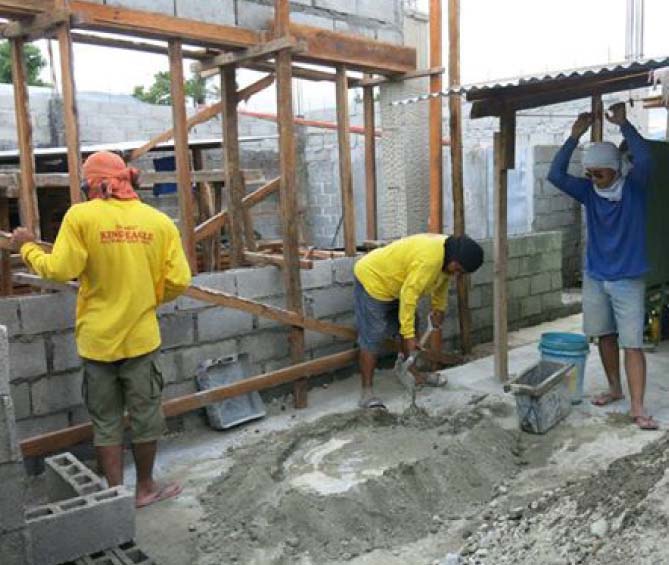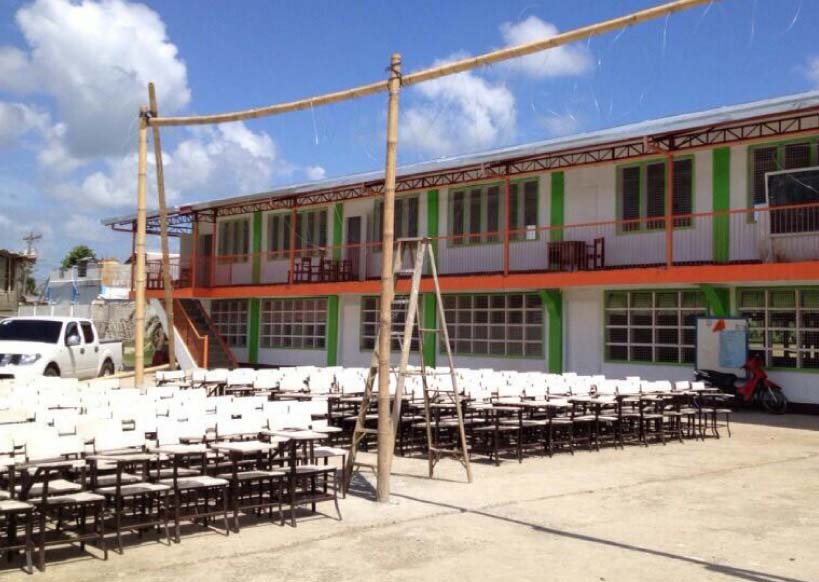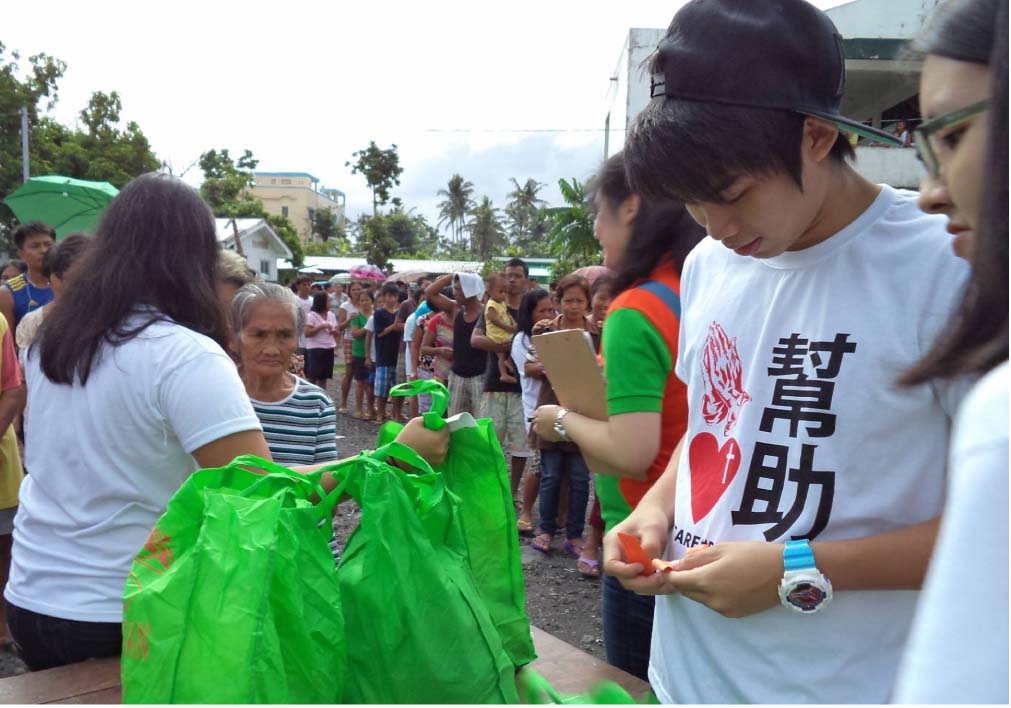Volunteering is not an uncommon undertaking in the Chinese-Filipino community. Volunteer fire brigades and charitable organizations are almost always the first to respond to emergency calls and offer sustainable help in disaster situations.
One such organization is Care Caravan (華福關懷列車), a social outreach organization of Chinese Christians that targets marginalized groups in Philippine society.
In 2011, when the country was going through one natural disaster after another, a group of Chinese-Filipino Christian friends got together to serve as a channel to address people’s prayers for blessings and help. One of the co-founders, Leslie Sun, a businessperson by profession, shares her realization: “God has cared for me and blessed my life in every way. That’s why I want to share God’s blessings and His love to others the best way I can.”

The language of care
Its network of volunteers from Chinese Christian churches nationwide and around the world enables the group to hold simultaneous relief operations in various calamity-stricken provinces. Although the majority of the volunteers have never done social work outside of the Chinese-Filipino community, borders and boundaries are transcended because whatever the racial and cultural differences, care has only one language.
Care takes the form of thousands of family relief packs, medicine, construction materials, fishing boats, hogs, planting materials and other forms of assistance as Care Caravan volunteers reached out to hundreds of thousands of victims of natural disasters in its distribution of aid and donation of immediate help and sustainable livelihood facilities.

Serving as a light to those trapped in the dark, the group also extends spiritual, educational and psychological support in its mission of social transformation by empowering the less privileged sectors of society.
Over the past five years, Care Caravan has been at the forefront and has been one of the immediate responders during times of natural calamity. Super Typhoon Yolanda was one of its most challenging missions.
This writer started volunteering for the group four months after the 2013 disaster and experienced one of the closest encounters she ever got with victims of disaster.
The communities were just starting to pick up the pieces from the storm surge. We talked to local residents whose houses were washed away. We talked to Chinese-Filipino store owners who reopened their shops after being traumatized by the after-calamity looting. We talked to the local officials who were trying their best to get everyone back up. And, together, we worked to rebuild their lives.
The Chinese-Filipino Christian communities here and abroad eagerly reached out to those in need. Now, houses, schools and churches stand where once there was only rubble.
The volunteers behind the Care Caravan secretly call themselves Care Bears. Like the classic cartoon characters, caring for others is a call of duty, to share what they have and extend help beyond their comfort zones. “I care because I know my God cares for the less fortunate people,” added Sun.

Volunteering is for all
According to Allen Uy, another co-founder, Chinese Filipinos are still apprehensive when they think of volunteering. “They will have reservations or their loved ones will not allow them to volunteer in disaster-stricken areas for security and safety reasons,” he says.
They have led a protected and sheltered life so instead of offering personal help, most would rather donate money as a safe, convenient and hassle-free option.
While financial assistance is important in the sustenance of the group’s many activities, Care Caravan also offers an opportunity for others to take part in volunteerism by giving them a chance to work up-close with the victims of calamities and for them to appreciate the situation better.
“Perhaps others care, but they just don’t know how to help,” says Sun. “We hope that they would be more comfortable with us when they see us spearhead operations since we are of the same race and hopefully this sets the tone of change on how our fellow Chinese Filipinos look at volunteerism,” adds Uy.
Volunteering is for everybody and it is beyond culture. Dr. Calvin Chu, another co-founder, shares that in volunteering, one builds relationships and it’s the giving of time and effort that is part of the self-sacrifice that God has exemplified. “God did not just entrust us with money, but also time, talent, energy, compassion and the wanting to be able to do something for those in need.”
Care Caravan can be reached through www.facebook.com/carecaravan or contact Leslie Sun at 09178831115. — First published in Tulay Fortnightly, Chinese-Filipino Digest 29, nos. 1-2 (June 21-July 4, 2016): 26.